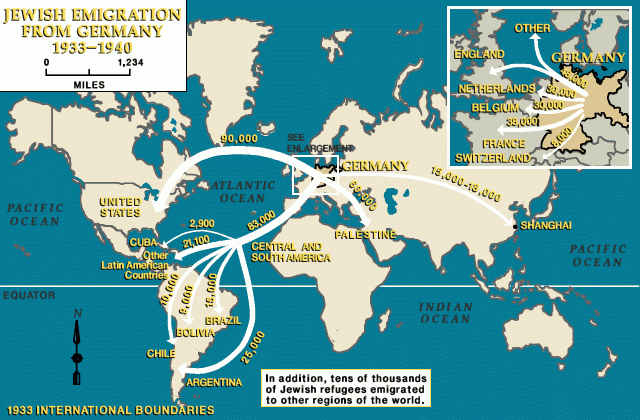
Emigration is the act of leaving one’s own country for another. Explore more content related to emigration during the Holocaust (1933–1945) and after.
We would like to thank Crown Family Philanthropies, Abe and Ida Cooper Foundation, the Claims Conference, EVZ, and BMF for supporting the ongoing work to create content and resources for the Holocaust Encyclopedia. View the list of donor acknowledgement.